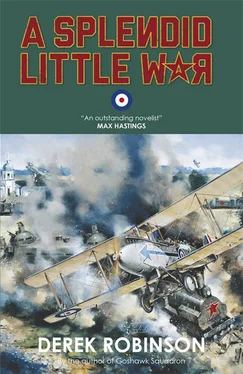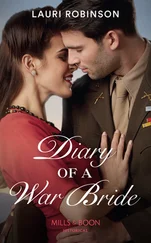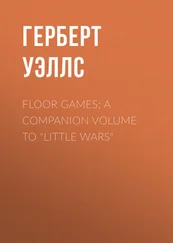“It happened. There was an American boy in my year. He found fagging very amusing. It means something very different in his country.”
“Yes. Did you suffer from homosexuality at Winchester?”
The percolator started to go bloop-bloop . “I don’t think anyone actually suffered ,” Stevens said. Bloop-bloop went the coffee. Lacey sprawled, and enjoyed the sound. It domesticated the radio room. “It hurts me to say so,” Stevens said, “but I should congratulate you on your poetic tribute to our late leader.”
“Written in haste, I’m afraid.”
“It was a touch too long.”
“Perhaps. I didn’t have time to write a shorter piece.”
Stevens looked at him sideways. “Pascal said that first, didn’t he?”
“Did he? Quite possibly.”
Bloop-bloop .
“Your first line: ‘Calm is the morn…’ Tennyson, isn’t it? His In Memoriam . But…” Stevens hunched his shoulders. “Not entirely Tennyson.”
“I changed the ending. ‘Without a sound’ is what Tennyson wrote but it sounded flat, so I made it ‘after direst duress’, which also rhymes with line three, ‘one ray the less’. The chaps like poetry that rhymes.”
“So, not content with pinching bits of Tennyson, you mess them about too.”
“Enhance, Stevens. I enhance them.”
“Who else did you rape?”
“Oh… Shelley. Line two: ‘For the sword outwears its sheath’. I wasn’t convinced by ‘sheath’. Not a very manly word. I changed it to ‘clasp’, which rhymes with ‘blast’ in line four.”
“No, it doesn’t.”
“Near enough. And towards the end, I needed a rhyme with ‘stone’. Campbell wrote: ‘The meteor flag of England shall yet terrific burn ’, which is a big disappointment. What he should have said is ‘has gloriously flown’. And now he has.”
“Shameless,” Stevens said. “At least you didn’t fool around with your last lines. The Burial of Sir John Moore, wasn’t it? Every schoolboy’s read it.”
“It was irresistible. ‘We carved not a line, and we raised not a stone, so we left him alone with his glory’. Perfect bull’s-eye. I know two handkerchiefs came out. At least two.”
Stevens lifted the percolator from the Primus and let it rest. “So what didn’t I spot?”
“Bit of Wordsworth, bit of Byron, rather too much Walter Scott.” Lacey, deep in his armchair, fingertips making an arch, looked professorial. “But you know how Scott burbles on. Hard to stop him.”
They were drinking their coffee when the adjutant came in. “Oliphant’s funked being acting C.O.,” he said. “So I’m in charge until Taganrog. They’ll want a report on what happened to Hackett. Give me a copy of your flowery verse. Something to bulk out the sad facts.”
“Oh,” Lacey said. “Is that absolutely necessary?”
“The curse of genius,” Stevens said. “The price of a raging talent.”
7
The same amiable, plump captain who, long ago, had been chatting to Maynard at lunch in Novorossisk, was waiting on the platform when the trains pulled into Taganrog and everyone piled out. After five days of trundling across the empty, unchanging steppe, the squadron hoped Taganrog was Paris on the Black Sea. With a slice of Sodom and Gomorrah thrown in.
The captain quickly picked out Brazier as the most responsible man. “Welcome to Tag,” he said. “Good journey?”
“Tedious. Got shot at by bandits. One engine exploded.”
“Yes. That’s how it is in Russia.”
“The C.O. got killed.”
“My dear chap, what rotten luck. Do you need a C.O.? Yes, of course you do. We can fix you up, I’m sure of it. We’ve got everything here. Our H.Q. is huge. As soon as Denikin began his Big Push, all the chaps from Novo and Ekat came up here, to be nearer the Front.”
“And where is that?”
“Oh, hundreds of miles away by now. They say Denikin’s taken Kharkov. And he may have got Kiev. Come to lunch, somebody will tell you.”
“First things first. You want Colonel Kenny V.C. He’s boxed up, ready to go.”
“Of course, of course. Slipped my mind. These chaps will take care of him.” The captain waved to a waiting army lorry. “Tragic event, truly tragic… About lunch. I’ve got a car. You’ll enjoy Tag; it’s like Brighton, bright and breezy. Awfully friendly.”
Brazier pointed at the Camels and Nines lashed to the flatbed trucks. “We’re here to fight.”
“Yes, exactly. No time to waste. Did I say that you leave here tomorrow? Slipped my mind. Who else would you like to bring to lunch? I can get five in the car. Six, at a pinch.”
When the squadron heard that it had only twenty-four hours in Taganrog, nobody wanted to waste any of it on lunch at Mission H.Q.
“Don’t worry about us, Uncle,” Junk Jessop said. “Our behaviour will be in the finest tradition of the Service.”
“That means you’ll get blotto and act batty,” Brazier said. He found Wragge. “For God’s sake, Tiger, keep them out of the red light district. Tell them pox is a court-martial offence. Any man gets thrown in jail will stay there and rot. We’ll leave without him.”
“Uncle, their conduct will be exemplary. Impeccable.”
“And take Borodin with you. I don’t want any stupid misunderstandings.”
“What could possibly go wrong?”
Brazier widened his eyes and stared. “More things than you could imagine,” he said, “and worse.”
Wragge got the crews together, and Borodin led them to a line of four-wheeled carriages. “These are droshkys ,” he said. “Russian cabs. I’ll tell the drivers to show you the sights. Be kind to them and they will be good to you.”
The droshkys set off, four men in each cab. Wragge was in the lead with Borodin and a couple of bomber boys. “Damn,” he said. “Forgot to give them Uncle’s advice.” Borodin told the driver to slow down until the next droshky was almost alongside. Wragge stood up. “I say, you chaps,” he called. “Uncle says beware the floozies. And give the jug a miss. Pass it on.” He sat down. His driver shook the reins and they moved ahead again.
“What did he say?” Daddy Maynard asked.
“Sounded like, ‘See what the floozies are wearing’, I think,” Junk Jessop said. “I wasn’t really listening. And don’t miss the jug. Funny thing to say.”
“Maybe they serve their tipple by the jug,” Rex Dextry said. “Saves time.”
“Look,” Tommy Hopton said. “Floozies! And jolly friendly!” He waved back. “Tally-ho. This is going to be fun.”
They had entered a wide circus, with heroic statuary in the middle. “If this was ancient Rome,” Maynard said, “they’d have chariot races around here.”
“Bloody good idea,” Jessop said. “A brace of floozies, a jug of wine, and lickety-split around the circus! By golly, that would give the town something to remember us by.”
Lacey had no time for fun. His business partner, Henry, had followed the British Military Mission from Ekat and now he had a penthouse suite at the best place in town, the Hotel Olymp. They met there.
“You’ll be gone a long time,” Henry said.
Lacey knew that he was from a New York family of stockbrokers, had been to Yale, served with the American Expeditionary Force in France and left the Force, and France, in something of a hurry. He never explained why and Lacey never asked. They had met in Ekat. Henry’s American accent was under control. He spoke quietly, in complete sentences, with no ums or ahs. He knew everyone worth knowing, down to the last rouble in their pockets. He was an instinctive businessman. He did business the way normal men breathed in and out.
Читать дальше











